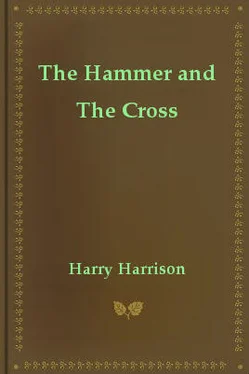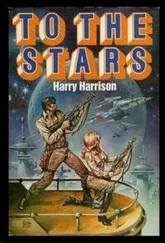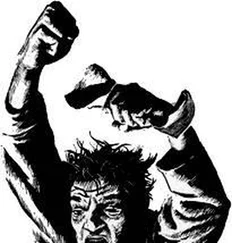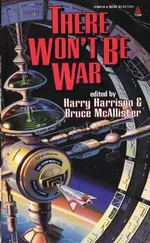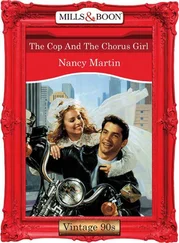“Now we stand on this block, and we make this boast, that we will—”
“…invade England in vengeance for our father”—so Halvdan said.
“…capture King Ella and kill him with torments for Ragnar's death”—so Ubbi.
“…defeat all the kings of the English and bring the land into subjection to us”—so Sigurth the Snake-eye.
“…wreak vengeance on the black crows, the Christ-priests who counseled the orm-garth”—so Ivar spoke. They ended again together:
“…and if we go back on our words let the gods of Asgarth despise us and reject us, and may we never join our father and our ancestors in their dwellings.”
As they ended, the smoke-blackened beams of the long-house were filled with a roar of approval from four hundred throats, the jarls, the nobles, the skippers, and the helmsmen of the whole pirate fleet in unison. Outside, the rank and file gathering from their booths and bunkhouses nudged each other with excitement and anticipation, knowing that a decision had been made.
“And now,” the Snake-eye yelled over the din, “pull out the tables, spread the boards. No man may inherit from his father till he has drunk the funeral ale. And so we shall drink the arval for Ragnar, drink like heroes. And in the morning we shall gather every man and every ship and take our way to England, so that they shall never forget us nor be quit of us!
“But now, drink. And, stranger, sit at our board and tell us more of our father. There will be a place for you in England once it is ours.”
Far away, Shef, the dark boy, the stepson of Wulfgar, lay on a straw pallet. The mist was still rising from the dank ground of Emneth, and only a thin old blanket covered him from it. Inside the stout-timbered wooden hall, his stepfather Wulfgar lay in comfort, if not in love, with the boy's mother, the lady Thryth. Alfgar lay in a warm bed in a room by his parents, and so too did Godive, the concubine's child, Wulfgar's daughter. At Wulfgar's homecoming they had all eaten lavishly of the roasted and the boiled, the baked and the brewed—duck and goose from the fens, pike and lamprey from the rivers.
Shef had eaten rye porridge and gone out to his solitary hut by the smithy where he worked, to have his only friend dress his new-got scars. Now he was tossing in the grip of a dream. If dream it was.
He saw a dark field somewhere on the edge of the world, lit only by a purple sky. On the field lay shapeless huddles of rags and bone and skin, white skulls and rib cages showing through the remains of gorgeous garments. Round the huddles, everywhere on the field, hopped and swarmed a great army of birds—huge black birds with black beaks, stabbing savagely into eye sockets and pecking bone-joints for a morsel of flesh or marrow. But the bodies had been picked over many times, the bones were dry; the birds began to croak loudly and peck at each other instead.
They ceased, they grew quiet, they clustered together to where four black birds were standing. They listened as the four croaked and croaked in ever louder and more menacing tones. Then the whole flock rose as one into the purple sky, circled and closed formation, then banked slowly like a single organism and flew directly toward him, toward Shef, to where he was standing. The leader flew straight at him, he could see the remorseless unblinking golden eye, the black beak pointed at his face. It did not pull back, he could not move; something was holding his head firm and rigid; he felt the black beak driving deep into the soft jelly of his eye.
Shef woke with a shout and a start, leaping straight off the pallet, clutching his thin blanket round him as he stared out of the hole in his hut's wall into a marshy dawn. His friend Hund called from the other pallet.
“What is it, Shef? What frightened you?”
For a moment he could not reply. Then it came out as a croak—he did not know what he was saying. “The ravens! The ravens are on the wing!”
“Are you certain it is the Great Army itself which has landed?” Wulfgar's voice was angry but unsure. It was news he did not want to believe. But he did not dare to challenge the messenger openly.
“There is no doubt,” said Edrich, the king's thane, trusted servant of Edmund, king of the East Angles.
“And this army is led by the sons of Ragnar?”
Even more fearful news for Wulfgar, thought Shef as he listened to the debate from the back of the room. Every freeman in Emneth had crowded into their lord's hall, summoned by runners. For though a freeman in England could lose everything—land-right, folk-right, even kin-right—for failing to answer a lawful summons to arms, for that very reason it was also their right to hear all issues debated publicly before they answered any call.
Whether Shef had any right to join them was another matter. But he had not been collared as a slave yet, and the freeman standing by the door to verify presence and absence still owed Shef for his mended ploughshare. He had grunted doubtfully, looked at the sword and shabby scabbard at Shef's side, and decided not to press the point. Now Shef stood at the very back of the room among the poorest cottagers of Emneth, trying to hear without being seen.
“My men have spoken to many churls who have seen them,” said Edrich. “They say this army is led by four great warriors, the sons of Ragnar, all of equal status. Every day the warriors gather round a great banner with the sign of a black raven. It is the Raven Banner.”
Which the daughters of Ragnar wove all in one night, which spreads its wings for victory and droops them for defeat. It was a familiar story, and a fearful one. The deeds of the sons of Ragnar were famous all over Northern Europe, wherever their ships had sailed: England, Ireland, France, Spain, and even the lands beyond in the Middle Sea, from which they had returned years before laden with booty. So why had they now turned their fury on the poor and puny kingdom of the East Angles? Anxiety grew on Wulfgar's face as he pulled his long mustache.
“And where are they camped?”
“In the meadows by the Stour, south of Bedricsward.” Edrich the King's Thane was visibly beginning to lose his patience. He had been over this several times before, and in more than one place. It was the same with every petty landowner. They didn't want information, they wanted a way out of their duty. But he had expected better from this one, famous for his hatred of the Vikings, a man—so he told it—who had stood sword to sword with the famous Ragnar himself.
“So what are we to do?”
“The order of King Edmund is that every freeman of the East Angles capable of bearing arms is to muster at Norwich. Every man over fifteen winters and under fifty. We will match their host with ours.”
“How many of them are there?” called one of the richer tenants from the front.
“Three hundred ships.”
“How many men is that?”
“They row three dozen oars, mostly,” said the king's thane, briefly and reluctantly. This was the sticking point. Once the yokels realized what they were up against, they might be hard to move. But it was his duty to tell them the truth.
There was a silence while every mind confronted the same problem. Shef, faster than the others, spoke aloud.
“Three hundred ships, and three dozen oars. That's nine hundred dozen. Ten dozen is a long hundred. More than ten thousand men. All of them warriors,” he added, more in amazement than fear.
“We can't fight them,” said Wulfgar decisively, turning his glare away from his stepson. “We must pay tribute instead.”
Edrich's patience was at an end. “That is for King Edmund to decide. And he will pay less if the Great Army sees that it is matched by a host of equal size. But I am not here to listen to talk—I bring a summons to obey. You and the landholders of Upwell and Outwell and every village between Ely and Wisbech. The king's order is that we shall muster here and set out for Norwich tomorrow. Every man liable for military service from the village of Emneth must ride or be liable to penalty and punishment from the king. Those are my orders and they are your orders too.” He turned on his heel, facing the room full of stirring, unhappy men. “Freemen of Emneth, what do you say?”
Читать дальше
